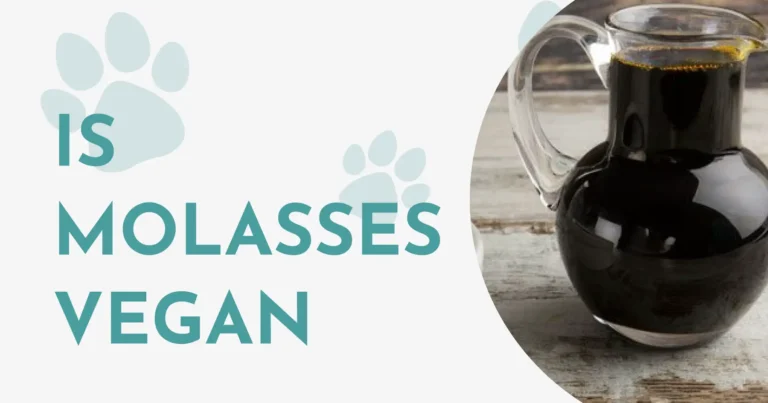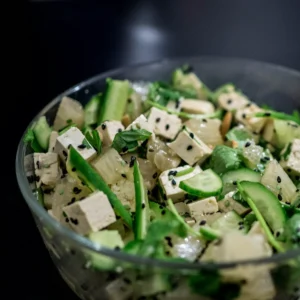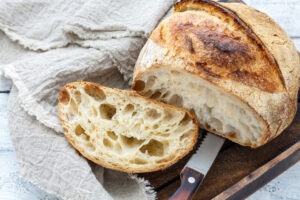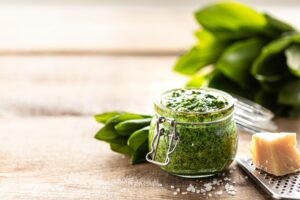When it comes to choosing which foods to include in a vegan diet it can be difficult to be sure which are actually free from animal products. Some foods are a no-brainer (like rice in most cases).
Table of Contents
I know I like sweet potatoes and those are always cruelty-free in the non-processed state. But what happens when I want to turn them into a sweet potato casserole and I need to use sugar and molasses to create ooey-gooey perfection? As we will find out in this article not all processed foods are the same and sometimes a totally vegan start can end up being a non-vegan finish.
What is molasses?
Molasses is the sweet syrupy by-product of the process of milling or extracting sugar. Different kinds of sugars create different variations.
Popular types include
- Dark molasses,
- Light molasses,
- Blackstrap molasses
How it’s made?
Molasses is made while making cane sugar and beet sugar. The juices are extracted during the process. Once they are extracted then they are boiled and cooled. The cooled sticky syrupy creation is the molasses.
It’s great for baking because along with sweetness it adds moisture and richness. Molasses is commonly used in pies, dark bread, cookies, and marinades. It is the main ingredient in brown sugar. Fun fact: molasses is used to make rum.
Molasses has been around for a very long time. The process of extracting sugars from cane and beets has been refined over the centuries.
- The raw materials are washed and cleaned, typically on conveyor belts. The cane and/or beets are then sliced and made into smaller pieces.
- Extraction occurs when the stalks are rolled under heavy machinery that aims to squeeze out all the juices. They are sprayed with water to help dissolve more quickly.
- The juices are filtered and clarified to remove any impurities.
- Boiling off the water leaves the sticky syrupy material left. The sugar cools and then crystalizes and is removed.
- The molasses is then cooled and bottled for sale.
Is Molasses Vegan?
Molasses is made strictly from sugar, so technically it contains no animal products.
However, like many other processed foods, the devil is in the details. The production of it and the materials used to make it is where there could be discrepancies in whether it is vegan label worthy.
Sugar, in its natural state, is a plant-derived product. Sugar in the United States? No, not so much. U.S. sugar producers use what is known as bone char – mostly cow bones -, to whiten the sugar. Using animal bones in the production of sugar or molasses creates a non-vegan product. Vegans beware.
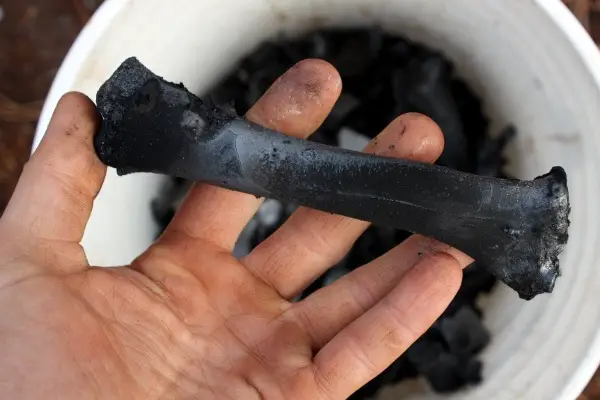
Blackstrap Molasses
Blackstrap molasses is the last step in the boiling process. Some say it is actually not very sweet at all. It comes with a host of health benefits such as additional calcium, potassium, iron, magnesium, phosphorus, and B6. It contains more antioxidants than honey, syrup, and agave, making it a powerful ingredient.
Resources have claimed it can promote bone health, reduce stress, improve hair, maintain blood sugar levels, and lower blood pressure. That’s a lot of benefits for one addition to your food!
It is mostly used for cooking and baking. However, it can be added to oatmeal to make a tasty breakfast or in an apple cider vinegar drink to promote digestion and regulate blood sugars.
It can be made with beet sugars or sugar cane the same as all molasses. However, there is not much evidence of where exactly the sugar is coming from and there is always a possibility that bone char was used in the production.
Treacle
There are some key differences between treacle and molasses. For instance, molasses is boiled for a much longer time than treacle is. That process creates a darker color and makes it a more bitter and less sugary product.
The consistency between the two is also a big difference. They don’t say “slow as molasses” for nothing! Treacle is a lot thinner and more fluid than its sticky and thick counterpart.
It is used very similarly to molasses and has a lot of the same health benefits.
Grandma’s Molasses
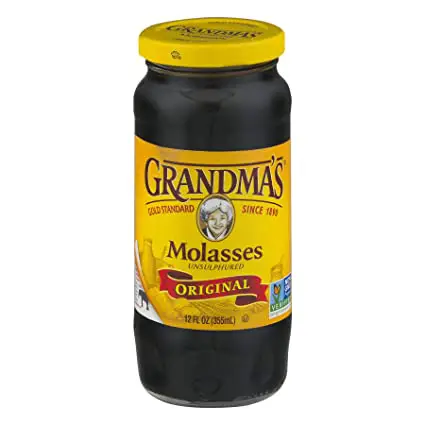
One of the most popular brands of molasses is Grandma’s Molasses. It is made as an Original and Robust recipe.
Grandma’s Molasses website states the ingredients as Molasses. It goes on to say “It contains no preservatives, artificial flavors, artificial colors and it is fat-free, gluten-free, and kosher.” It does not state if it is vegan or not.
Conclusion
As vegans, we need to make decisions like this all the time. Some of us stick to hard and fast rules, while others carefully consider each ingredient that we use. The good news is; that we can make the decision for ourselves. Is it vegan if there are no animal products listed in the ingredients? Do I not eat it knowing there could be a chance that something along the way in production may have caused harm?
The only way to truly know is to contact the manufacturer of the specific brand.
Frequently Asked Questions
How long does molasses last?
Like most jarred food it should be kept in a cool and dark place until ready for use. It can also be kept in the refrigerator. Stored properly it can last up to a year. Always check the “best-by” date and look for mold if you feel it’s been sitting a little too long.
Is Grandma’s Molasses vegan?
The jury is out. Without knowing the exact origin of the sugar used in the process it could be or it could not be. Other than that, it is vegan-friendly.
Is all Molasses vegan?
No. Not all molasses is vegan. If bone char is used in the sugar then no, it is not vegan.
Is black strap Molasses Vegan?
Certain brands such as Wholesome Organic Molasses are vegan. Be sure to always check the label.
Is cane molasses vegan?
If bone char is used in the sugar then no, it is not vegan.
Is cooking molasses vegan?
Most molasses is used for cooking. It depends on the brand if it is vegan or not. It is best to stick with organic companies.


